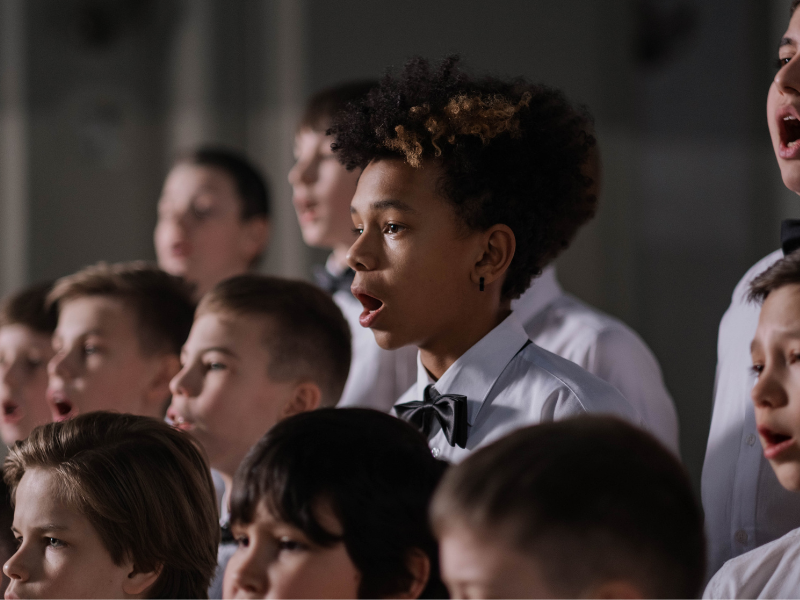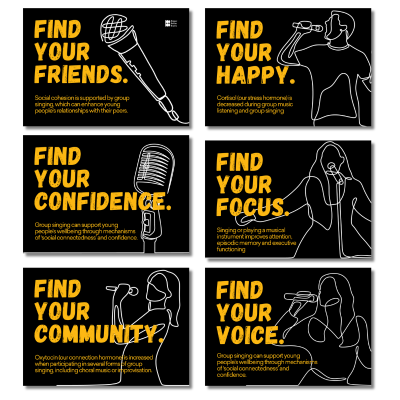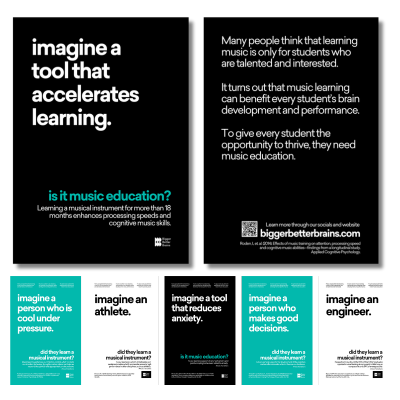
Research Updates

Here at Bigger Better Brains we believe that through educating yourself, you can then educate and affect positive change in your community.
With all of the research in the field of neuromusical science, our BBB Research section serves as a content hub for you. We regularly share findings and break down the latest research to educate and inspire discussion. We hope you enjoy this page on our website and share BBB news with your colleagues, parents and students.
- Advocacy
- Ageing
- Aging
- Attention
- Auditory Processing
- Cognitive Health
- Communication
- Community
- Dyslexia, Autism & ADHD
- Early Childhood
- Executive Function
- Fireworks
- Impulse Control
- Language & Literacy
- Memory
- Music Learning
- Music Listening
- Neural Development
- Parents
- Personality
- Productivity
- Prosocial Behaviour
- Prosody
- Reading
- Rehabilitation
- Research Bites
- Research Methods
- Research Quick Reads
- Reward
- Singing
- Social Skills
- Video
- Wellbeing & Therapy
- Working Memory
How Playing Instruments and Singing May Boost Your Brain
Playing an instrument or singing in a choir isn’t just fun—it’s great for brain health too. A recent study found that people with musical experience have stronger memory and thinking skills than those without.
The Future of Work: Why Music Learning Prepares Students for Tomorrow’s Jobs
The World Economic Forum's Future of Jobs Report 2025 highlights the critical skills that will define the workforce of tomorrow.
Singing is not just singing, it is social glue
A new research project will investigate if singing together could be more than just a pleasant pastime; it might be a powerful tool for enhancing cooperation across various aspects of society, from classrooms to boardrooms.
Pitch Perfect: Singing Earworms Reveals Surprising Trait
Many of us have experienced those catchy tunes that get stuck in our heads, but did you know that nearly 45% of people can sing these earworms in perfect pitch?
Singing Together: How choirs boost brain health and emotional well-being
Singing in a community choir is more than just a musical activity—it's a powerful therapeutic experience
What happens to your brain when you sing?
Professor Sarah Wilson explains how singing is a form of natural therapy in this video by ABC Classic. She highlights the effect that singing has on motor networks, listening networks, planning and organisational networks, memory, language, and emotional networks. Essentially, singing is a full workout for the brain!
Singing is fundamental to our biological makeup
This is a brilliant article worth a full read, but here are some highlights for you from one of BBBs favourite researchers Professor Sarah Wilson from the University of Melbourne.
Singing at work = better job performance
Imagine having a singing group at your work. Imagine starting the day with a song with your colleagues. What would your work culture feel like and how would you feel about going to work?
Background music – good or bad for productivity?
As always it is all about context and what you trying the measure. This study found that background music for musicians leads to greater productivity, than non-musicians.
Can singing in a choir benefit you or your community?
Group singing scientifically strengthens a community! “You hear people say all the time, ‘Oh, I can’t sing’ or ‘I’m not good enough to sing,’ and I really think that’s a shame. It goes against our evolutionary history.”
When things get noisey do your ears shut down?
Our auditory processing system is possibly our largest information-gathering sense. It keeps us safe and it processes mountains of information without our knowledge. It also never turns off. But, sometimes it gets tired and a bit overwhelmed.
Background music ‘significantly impairs’ creativity
Do you use background music when you are completing a creative task? If you do, do you find that your creative output is better, more innovative or unexpected, or does the background music hinders these outputs?
Singing during pregnancy enhances baby’s brain
The question “Does singing and listening to music during pregnancy help my baby’s brain?” and the answer are both complex and evolving.
The effect of preferred background music on sustained attention
When we have to do a task, many people often choose to put music on in the background rather than complete the task in silence. The researchers found that “background music increased the proportion of task-focus states by decreasing mind-wandering states but did not affect external distraction states.”























